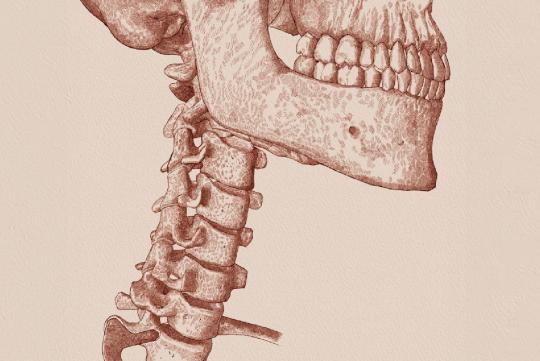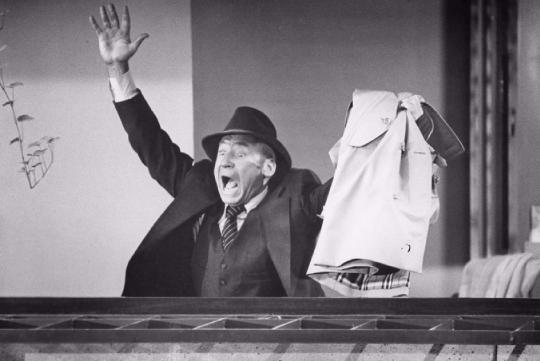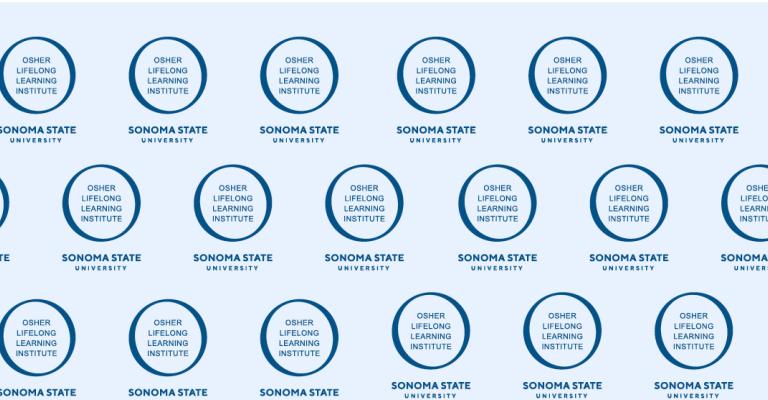Winter Registration
Online Registration for Fee-Based Lectures
Winter 2025
The OLLI winter session runs from January 27 - March 7, 2025.
Registration Opens: Wednesday, December 11, 2024.
- Please register for OLLI courses by Friday, January 17, 2025 at olli.sonoma.edu/registration or by phone by 5:00 p.m., Monday - Friday.
- ONLINE (ZOOM) classes: Registered students will receive email with class Zoom link the day before class starts. Please save the link that you receive. The Zoom link you receive will be the same link used for the duration of the course.
- IN PERSON classes: Registered students will receive an email the day before class starts with course location, directions, and parking information. There is a $6 daily parking fee at the SSU campus.
- Course materials are available at: olli.sonoma.edu/course-materials
Online or Hyflex Class Participants
If you are enrolled in a Hyflex or online course, you will receive an email the day before the class starts with information to attend in-person or through Zoom. If your class starts on a Monday, you will receive your class Zoom link on Friday. Please contact us at 707-664-2691 or olli@sonoma.edu if you have any problems accessing Zoom. Thank you.

Pink Floyd: From Psychedelia to Space Rock - CANCELED
Ritchie Unterberger
Mondays, January 27-March 3, 10 am-12 pm
Location: In Person Only, Green Music Center 1058
Pink Floyd were the ultimate space rockers, evoking astral exploration with their mix of haunting melodies, spooky electronic textures, and lengthy improvisations and concept albums. After original leader Syd Barrett brought them to the forefront of experimental British psychedelic pop, they regrouped after his late-1960s departure for a series of daring experimental LPs. Reaching global superstardom with 1973’s Dark Side of the Moon, they continued their reign as one of the world’s most popular bands throughout the rest of the 1970s. This course highlights the peak fifteen years of their creativity between the mid-1960s and late 1970s, the historical commentary amplified with both common and rare video and audio clips.

The Everlasting Renaissance
Heidi Chretien
Mondays, January 27-March 3, 1:30 pm - 3:30 pm
Location: Darwin 103, Hyflex*
Ever since the term “renaissance “ was first coined in the mid 19th century, it has been given to any historical period of time that shows an overflowing of artistic expression or of revival or renewal. It is also used to define periods of time that can also be called the “golden ages” or a kind of both wish or wish fulfillment. In this class we will begin by discussing the term, it’s origins and it ’s myriad of meanings. Does it always mean a revival of Classical imagery? As we focus on the Italian Renaissance of the 14th-16th centuries, what were the factors that helped create and shape this period. As we carefully study the artistic expression, how did this aesthetic define Western art for several centuries and who were the towering figures that have become synonymous for great artists. We will also examine what led to its demise, not just in art, and in doing so question if we are living in a renaissance today or are we in a period of "Dark Ages" that will proceed another burst of creative revival.

Dutch Masters and More: Northern European Painting from Van Eyck to Vermeer
Lynn Ostling
Tuesdays, January 28-March 4, 1:30-3:30 pm
Location: Stevenson 1300, Hyflex*
Ever since they discovered the new medium of oil painting around 1400, northern European painters have awed us with their skill and insight. In this series, we focus on art from 1400 to 1700, beginning with Jan van Eyck’s jewel-like imagery, Robert Campin’s hidden symbolism, and the visions of Hieronymus Bosch. The court of Henry VIII comes to life through Holbein’s incisive portraits, and Bruegel’s work brings us close to the lives of common people. In the 1600s—the golden age of Dutch art—painting reaches new heights in the work of Rembrandt, Hals and Vermeer. Join Art History professor Lynn Ostling in this exploration of three centuries of iconic European art.

Alexander the Great: Opening the Door Between East and West
Douglas Kenning
Wednesdays, January 29-March 5, 10:00 am - 12:00 pm
Location: Stevenson 1300, Hyflex*
Alexander of Macedon is arguably history’s most influential person and perhaps its most charismatic character. Launched by an extraordinary king and a powerful sorceress mother, with Aristotle as personal tutor, he conquered the known world and beyond while still in his twenties. We’ll follow his meteoric rise and his blazing footsteps. But more important than his exploits or charisma, he paved the road between West and East, planting Mediterranean culture in central Asia, while encouraging Asian influences to flood west. After him, a tapestry began weaving of threads of East and West so that neither ever would be the same again.

Pygmalion Rising: AI and Its Reflection Upon Humanity
Jesse Bengson
Thursdays, January 30-March 6, 1:30-3:30 pm
Location: Stevenson 1300, Hyflex*
Many accounts of A.I. are delivered from a unitary scholarly perspective, usually that of a computer science or engineering. This course offers a rare comprehensive view of AI nested within the history of mythology, contemporary culture, mathematics and cognitive neuroscience. This course details explicit parallels and distinctions between human brain function and AI while outlining the societal and human individual health consequences.

Now That The Election is Over, What's Next for the U.S. Economy?
Mike Arnold
Fridays, January 31-March 7, 10am-12 pm
Location: Stevenson 1300, Hyflex*
In terms of government policies and how the economy may perform it matters a lot who wins. Since Trump won, and if you believe that Project 2025 is a guide to what he may attempt to do, there are plenty of challenges that may arise. First, he has questioned the independence of the Federal Reserve, which is a “quasi- independent” federal agency that has significant influence on how the economy has performed and how the economy will perform. Second, he has advocated instituting a broad tariff policy. Both issues will be discussed. Then, if his past management of tax policy is to be a guide, one might expect further adjustments to tax schedules that (a) favor the most affluent and (b) increase the federal deficit. These topics will also be covered.

Skeletal Evolution and World History
Nicole Myers
Fridays, January 31-March 7, 1:30-3:30 pm
Location: Stevenson 1300, Hyflex*
We are supported by the skeleton within us, and it is continually changed by our experiences on Earth as we eat, drink, resist gravity, and age. Humans and all the mammals, reptiles, amphibians, and birds have inherited our skeleton from the first vertebrate ancestors that lived in the oceans more than 500 million years ago. Join me on a journey through half a billion years of the evolution of the skeleton, and an exploration of the comparative anatomy of amphibians, reptiles, birds, and mammals. Learn about the features of your human skeleton, how your bones allow you to explore Earth, and the ways that we can all support the integrity of our skeleton.

Contemporary Comedic Genius, Mel Brooks
Martin Marshall
Thursdays, January 30-February 13, 10 am-12:00 pm
Location: Stevenson 1300, Hyflex*
This course examines the life and works of Mel Brooks in depth. It shows clips from his films, explaining the background, intent and positioning of each. Week 1 includes Make A Noise, Week 2 The Producers 1968, Week 3 Blazing Saddles. Additional material will cover “Young Frankenstein”, the Broadway songs for “The Producers”, and a few other treats.

Travels in China with Jerry
Warren Wiscombe
Tuesday, January 28, 10 am-12 pm
Location: Stevenson 1300, Hyflex*
China has become an exotic travel destination for Westerners. I was invited to give two lectures in China in June 2024, so my wife and I took this opportunity to travel around China afterwards with tour guide Jerry. What we encountered was mind blowing, radically changed from our trip there in 2005, and largely unknown to Americans. In this lecture I will describe the strange and amazing things we saw, from smaller things like cosplay, robots in our hotels, and being constantly gawked at as if we were aliens, to large things like constant surveillance, endless rows of 30-story apartment buildings, and bullet trains traveling over 200 mph. And I will share some observations on the ways China seems to be pulling ahead of us.


